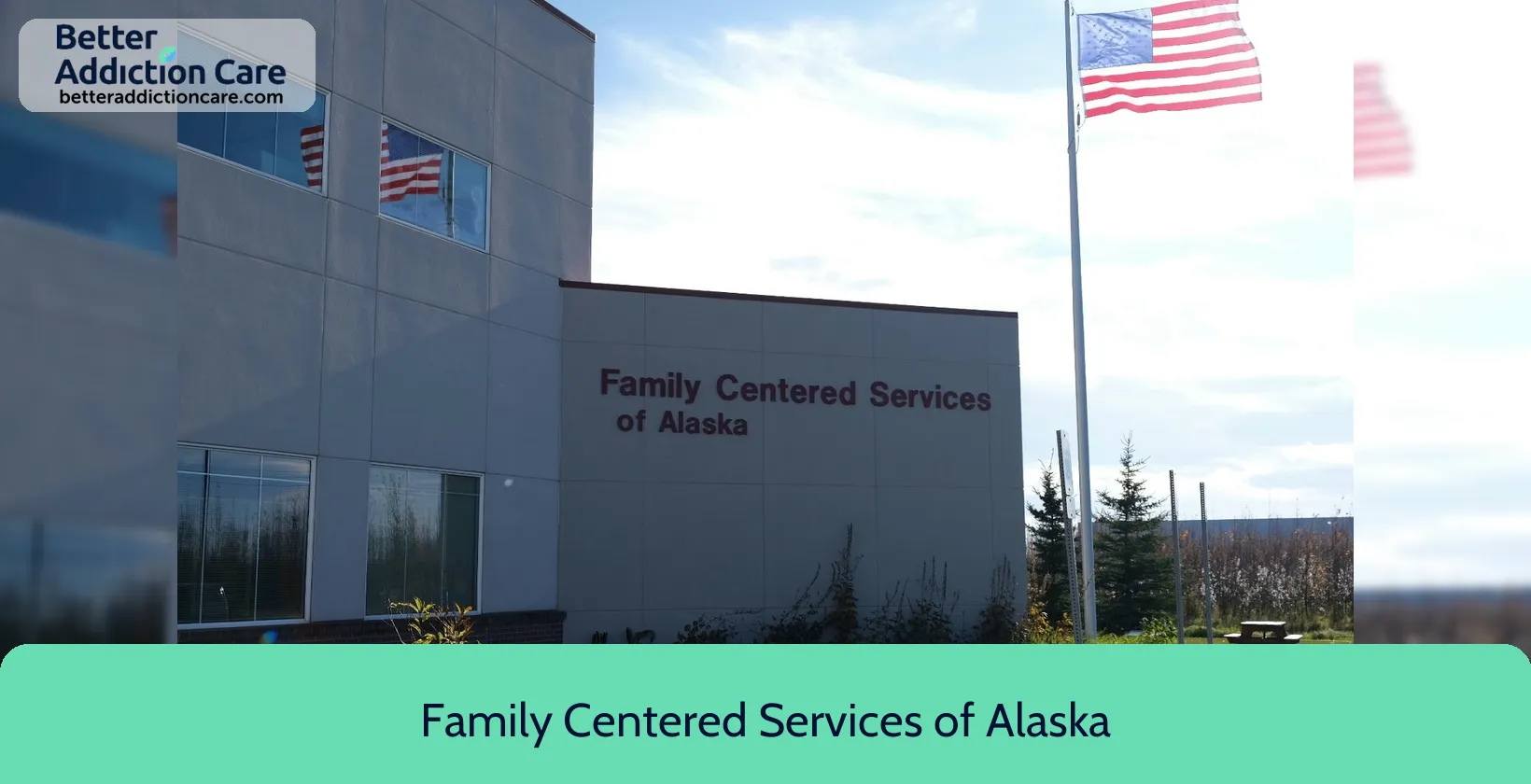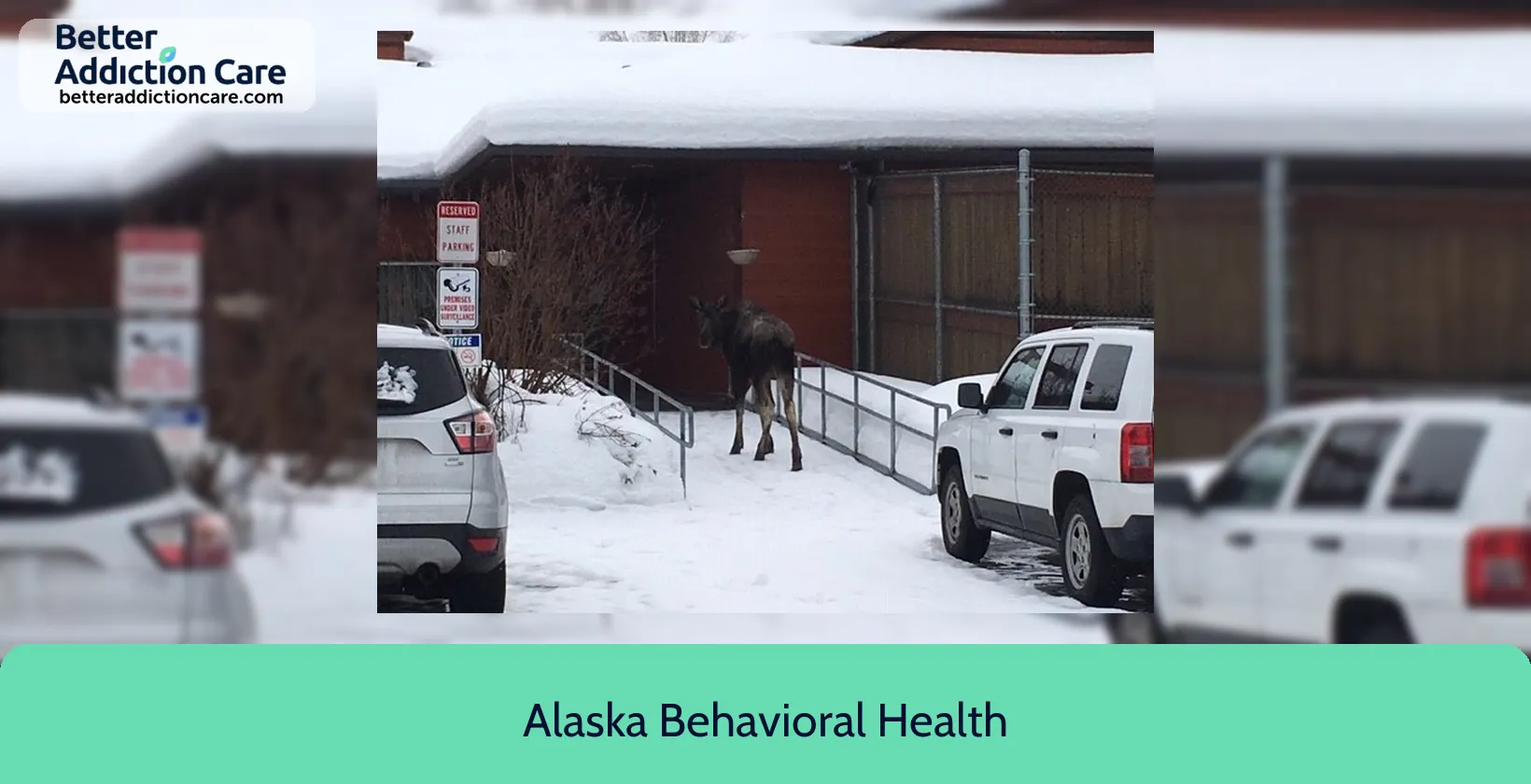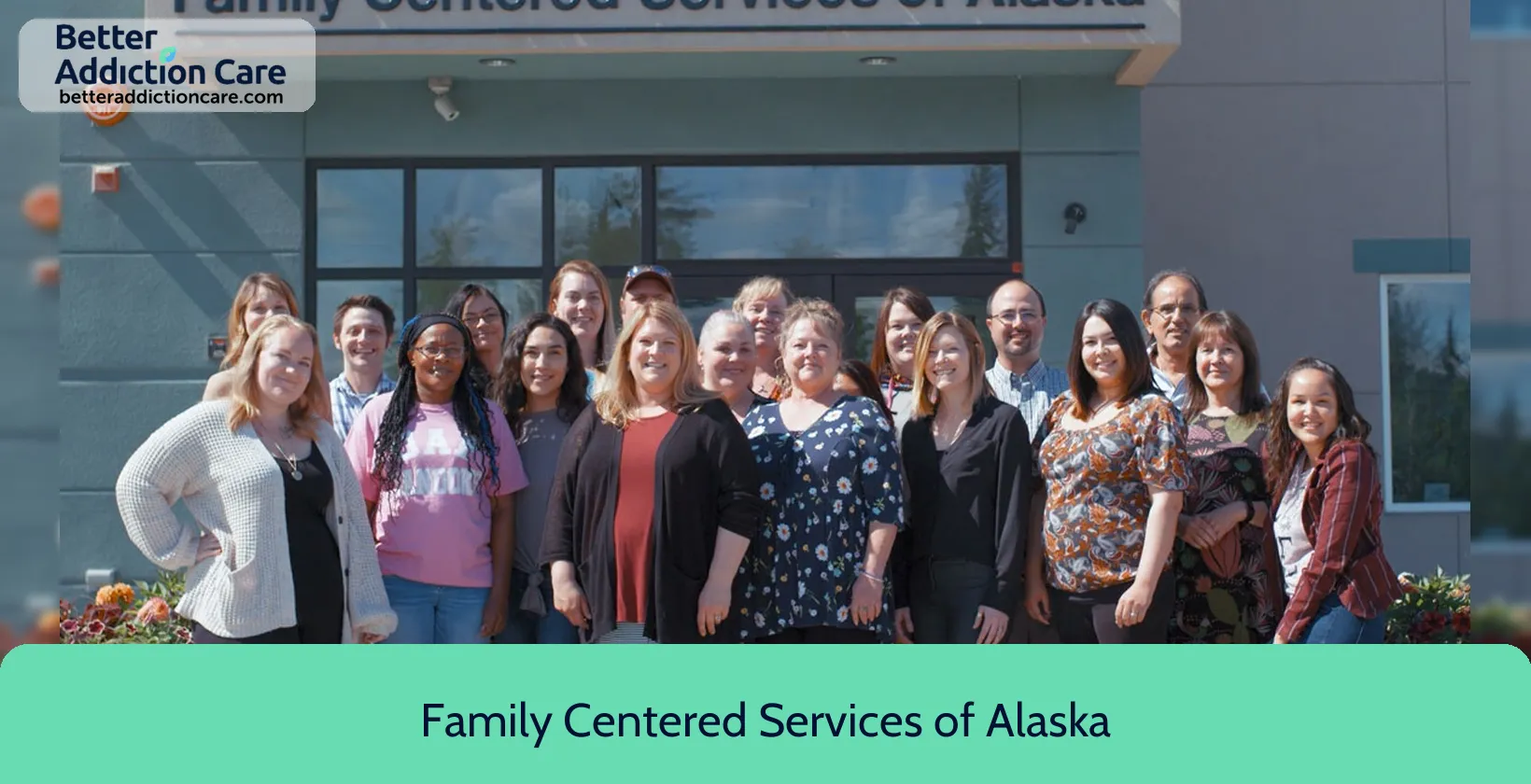Interior AIDS Association - Interior Medication Assisted Treatment

Overview
Interior AIDS Association - Interior Medication Assisted Treatment is an accredited substance abuse treatment center that provides outpatient treatment for men and women from 18+ years of age. As part of their special programs, Interior AIDS Association - Interior Medication Assisted Treatment treats clients with co-occurring mental and substance use disorders, pregnant/postpartum women, and clients who have experienced trauma. To help patients achieve sobriety, Interior AIDS Association - Interior Medication Assisted Treatment provides intake assessments. Afterward, patients receive cognitive behavioral therapy, telemedicine/telehealth therapy, and substance use disorder counseling during treatment. Interior AIDS Association - Interior Medication Assisted Treatment is located in Fairbanks, Alaska, providing treatment for people in Fairbanks North Star County, accepting cash or self-payment, medicaid, and medicare.
Interior AIDS Association - Interior Medication Assisted Treatment at a Glance
Payment Options
- Cash or self-payment
- Medicaid
- Medicare
- Private health insurance
- Federal military insurance (e.g., TRICARE)
Assessments
- Screening for tobacco use
- Comprehensive substance use assessment
- Interim services for clients
- Outreach to persons in the community
- Screening for mental disorders
Age Groups
- Young adults
- Adults
Ancillary Services
- Case management service
- Mental health services
- Social skills development
- Opioid use disorder clients only
Highlights About Interior AIDS Association - Interior Medication Assisted Treatment
7.39/10
With an overall rating of 7.39/10, this facility has following balanced range of services. Alcohol Rehabilitation: 8.00/10, Drug Rehab and Detox: 7.54/10, Insurance and Payments: 6.67/10, Treatment Options: 7.33/10.-
Alcohol Rehabilitation 8.00
-
Drug Rehab and Detox 7.54
-
Treatment Options 7.33
-
Insurance and Payments 6.67
Accreditations
Commission on Accreditation of Rehabilitation Facilities (CARF):

CARF accreditation is a prestigious recognition for organizations in rehabilitation and human services. It signifies that an organization meets rigorous quality standards and is committed to providing top-notch care. Achieving CARF accreditation involves a thorough evaluation process, including on-site surveys, to ensure excellence in programs and services. This accreditation boosts an organization's credibility, assures clients and funders of quality, and promotes ongoing improvement in the field of rehabilitation and human services.
Registration: 38774
SAMHSA certification for opioid treatment program (OTP):
SAMHSA's Opioid Treatment Programs (OTP) Accreditation is a rigorous recognition process, signaling an OTP's commitment to high-quality care for those with opioid use disorders. It assures patients, families, and the community that the program adheres to evidence-based practices, maintains a safe environment, and employs qualified staff. This accreditation represents a commitment to addressing the opioid epidemic and promoting recovery, symbolizing quality and accountability in opioid addiction treatment.
State department of health:

Government agencies issue State Licenses, granting rehabilitation organizations permission to operate their businesses lawfully within specific geographic regions. The specific licenses needed for legal operation are typically determined by the type of rehabilitation program offered by the facility and its physical location.
Treatment At Interior AIDS Association - Interior Medication Assisted Treatment
Treatment Conditions
- Alcoholism
- Substance use treatment
Care Levels
- Outpatient
- Outpatient methadone/buprenorphine or naltrexone treatment
- Regular outpatient treatment
- Aftercare
Treatment Modalities
- Cognitive behavioral therapy
- Telemedicine/telehealth therapy
- Substance use disorder counseling
- Trauma-related counseling
- Smoking/vaping/tobacco cessation counseling
Ancillary Services
Additional Services
- Pharmacotherapies administered during treatment
- Mentoring/peer support
- Drug or alcohol urine screening
Special Programs
- Clients with co-occurring mental and substance use disorders
- Pregnant/postpartum women
- Clients who have experienced trauma
Get Help Now
Common Questions About Interior AIDS Association - Interior Medication Assisted Treatment
Contact Information
Other Facilities in Fairbanks

6.99

6.68

6.68

7.37

6.82
DISCLAIMER: The facility name, logo and brand are the property and registered trademarks of Family Centered Services of Alaska, and are being used for identification and informational purposes only. Use of these names, logos and brands shall not imply endorsement. BetterAddictionCare.com is not affiliated with or sponsored by Family Centered Services of Alaska.
